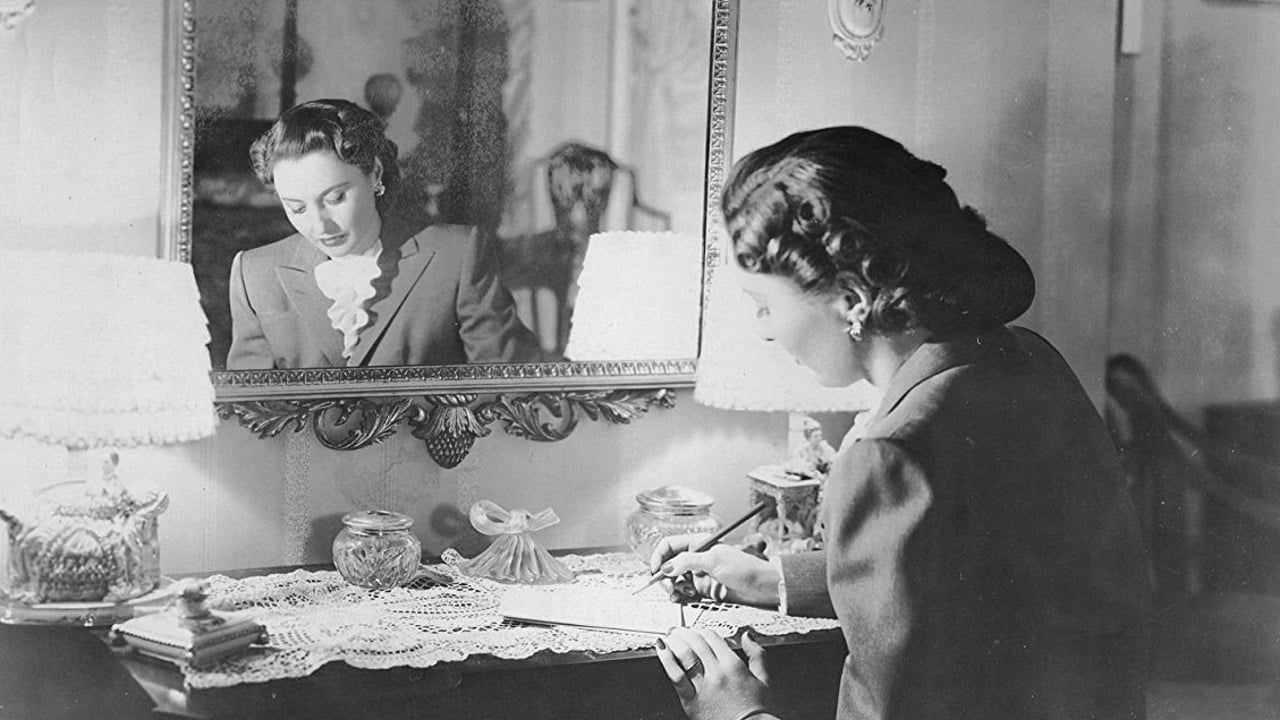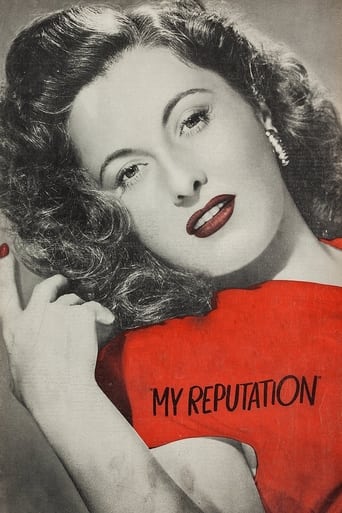

Copyright 26 January 1946 by Warner Brothers Pictures, Inc. A Warner Brothers-First National Picture. New York opening at the Strand: 25 January 1946. U.S. release: 26 January 1946. U.K. release: 12 August 1946. Australian release: 15 August 1946. 8,478 feet. 94 minutes. (Available on an excellent Warner Home Video). SYNOPSIS: Much ado about nothing. - Bosley Crowther in The New York Times.NOTES: Completed in early 1944, the film was shelved until the end of the war when the market was judged to be more receptive. Wise thinking, as it happened.COMMENT: A beautifully-made woman's picture that is almost always (except when the obnoxious Scotty Beckett is on-screen, which fortunately is not too often) a pleasure to watch, so attractive is its lighting, sets and costumes and so likable are its principals (even Brent comes across quite charmingly). The situation has a pathos making the Stanwyck character sympathetic, and though she moves in an unrealistic high-class atmosphere, the conflict with Lucile Watson is well contrived. There's also a beguiling Steiner score and Bernhardt's direction seems more smooth and fluid than his usual stodgy efforts. In all, a supremely polished example of Hollywood craftsmanship at its best. Production values are lavish.
... View MoreBarbara Stanwyck, sometimes underrated as an actress (four Oscar nominations and no wins) and always undervalued as a star, shows why she lasted so long - she could do anything. Usually cast as a mobster's tough tart or a hard-luck dame and everything in between, here she plays a first-class lady, a widowed mother of two, a fine upstanding citizen who lives in that Never-Never Land called the Upper Middle Class laughingly depicted by Hollywood as a place where women belong to country clubs, constantly appear dressed in mink and evening gowns, are constantly making grand entrances and exits and are forever worrying what the neighbors will think. Joan Crawford fit right into this nonsensical neighborhood once she joined Warner Bros. and may well have been offered this script but thankfully Stanwyck took the part and created from the ground up another unforgettable performance in a forgettable (but very popular in its day) film. The story is nothing special but oh! how Barbara dominates every scene she's in, and does it without really trying (or so it seems). While Davis and Crawford had a tendency to remind audiences that they were acting, Stanwyck just rolled up her sleeves and got the job done. Such truth in her work! Watching her is an electric experience, she connects with an audience like few stars had or have before or since. Splendid!
... View MoreWidowed socialite in her early 30s, expected by her two boys, her mother, and her friends to grieve her husband's death for a lengthy period of time, instead meets and falls in love with a randy, masculine soldier--a man who clearly informs her he's not the marrying kind. Although she isn't quite the motherly type, Barbara Stanwyck gives yet another of her sterling performances in the lead. Whether standing up to the gossipy biddies in her town or trying to explain her definition of love to her sons, Stanwyck never hits a false note. Warner Bros. apparently had little faith in the film's appeal, keeping it on the shelf for two years, and yet it's a solid example of the 'woman's picture', a classy nosegay with one of those beautiful Hollywood finales at the train station. **1/2 from ****
... View MoreI have an insatiable schwarm for Barbara Stanwyck. I love the way she looks, the way she speaks, her whole presence on screen. But one of my favorite things about her is that she consistently played women who, unlike the female leads in many of the films of her time, go toe to toe with their men in wit and resourcefulness. As a rule, a man playing opposite Stanwyck spends most of the film looking utterly gobsmacked -- or, as one played by Henry Fonda once put it, "cockeyed." She proved that even in the 1940's a woman could be warm and lovable, as well as sexy, without having to repent of having been a card sharper, a gangster's moll, a shoplifter, or a burlesque striptease artist.That's why I was so surprised to see My Reputation, in which Stanwyck plays a woman who has been sheltered all her life, and is not only conventional but meek and timid. I was also delighted to find that she does it quite well, keeping her voice soft and her smile restrained, and not overdoing the crying scenes, of which there are several.The film is also worthwhile for the look it offers at old money in the Chicago suburbs in the 1940's. The Stanwyck character's mother is a dragon, but not all bad; the members of the elite little social circle range from ill-natured prigs to good-natured bores to genuine friends. Most fascinating of all are the central character's two sons, ages twelve and fourteen. They are far more convincing and likable than a lot of child characters in classic Hollywood films, and in keeping with their upbringing and milieu, they are more innocent but also far, far more socially poised than children that age tend to be today.As enjoyable as this film is, however, it does have one serious false note -- spoilers coming -- and that's the love story. Yes, this is another one of those films which is billed as a love story in which the object of the central character's affections is, well, unlovable. They start him off as one of those conceited, swaggering alpha males whose version of sex appeal is to tell the woman -- since she can't apparently be expected to figure it out for herself -- what's wrong with her, when she wants to be kissed, and why he knows what's best for her better than she does (think Clark Gable in It Happened One Night or Robert Mitchum in The Grass is Greener). As tiresome as that is, when My Reputation's male lead finally starts being a little more gentle and respectful towards Stanwyck's character, it's not that much of an improvement. At that point he's merely a rather ordinary man with a regrettable mustache. The viewer is left wondering what she sees in him, especially since a supporting character named Frank -- a family friend as well as her financial adviser in her widowhood -- moons after her the whole time, thinks the world of her, and, from some angles, bears a resemblance to George Clooney.This may not be Barbara Stanwyck's best film, but it's pleasant to watch, and no weepier than it needs to be.
... View More